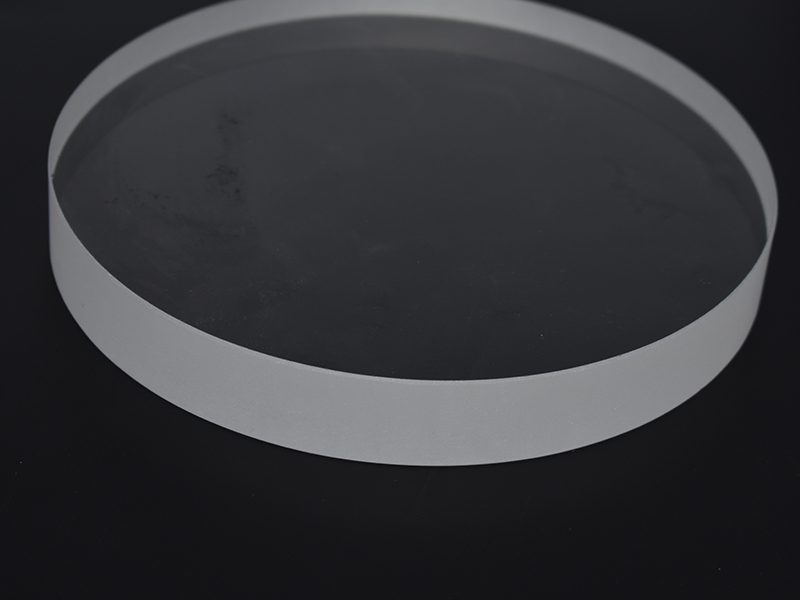Factors Affecting Physical Tempering
Click:
-Time:2022-05-27 10:34
As we all know, many properties of glass have been improved after tempering. Its bending strength is 4 ~ 5 times higher than that of ordinary glass, its quench and heat resistance is 3 ~ 5 times higher than that of ordinary glass, and its impact strength is several times higher than that of ordinary glass. At present, the main tempering method is physical tempering. What are the factors affecting physical tempering?
When a certain thickness of glass is quenched, the stress in the glass increases with the increase of quenching temperature and cooling intensity. When the quenching temperature reaches a certain value, the degree of stress relaxation hardly increases, and the stress tends to a limit value, which is called the quenching degree of glass. It depends on the cooling strength, glass thickness and chemical composition of the glass.


(1) Cooling intensity
In the glass industry, generally toughened glass adopts air-cooled toughening. The greater the cooling intensity, the more intense the toughening. However, the cooling intensity depends on the wind pressure of the air and the distance between the small hole on the grille and the glass. In addition, the diameter of the nozzle also affects the toughening degree of the glass. The larger the diameter, the larger the area of air contacting the glass, and the cooling intensity also increases.
(2) chemical composition of glass
The chemical composition of glass has a great influence on the degree of tempering. Because the magnitude of stress is related to the expansion coefficient of glass α、 Young's modulus E and temperature gradient △ T are in direct proportion to Poisson's ratio μ Inversely proportional. and α、 E、 μ It is determined by the chemical composition of glass, and the toughening degree of glass with different chemical composition is different. When 20%ro is used to replace SiO2 in glass in r2o-sio2, the tempering degree is doubled.
(3) glass thickness
Under the same conditions, the thicker the glass, the higher the degree of tempering. Plate glass is generally tempered with glass of more than 2.5mm to ensure the generation of large permanent stress. If the thickness is small, the corresponding cooling rate is very high, so as to obtain a better degree of tempering. For non flat glass products, the thickness shall be uniform during tempering, and the difference shall not be too large, otherwise it will break due to uneven stress distribution.
If you are interested in the or need to consult, please call us +8613343800331.Pan Chao special industrial glass, Customize your persoalised glass products.
Welcome sending your inquiry: Phone :+8613343800331 Email: sales@panchaoglass.com
If you are interested in the or need to consult, please call us +8613343800331.Pan Chao special industrial glass, Customize your persoalised glass products.
Welcome sending your inquiry: Phone :+8613343800331 Email: sales@panchaoglass.com
Related articles
- Application of High Temperature Resistant Glass
- Thermal Properties and Types of High Temperature Resistant Gl
- Factors Affecting the Service Time of High Temperature Resis
- Main Production Methods of Quartz Glass
Recommend
- Performance and Purchase Precautions of Industrial Mirrors
- Factors Affecting Physical Tempering
- Classification and Properties of Heat Resistant Glass Sheets
- Thermal Stability of Peephole Glass
- Characteristics of Tempered Glass and Semi Tempered Glass
- Types and Selection Precautions of High Temperature Glass for
- How to Choose High Pressure Resistant Glass
- Application of High Temperature Resistant Glass
- Common Sense Knowledge of Toughened Borosilicate Mirror
- Advantages of toughened borosilicate glass
Rank
- Application of high temperature resistant glass
- Precautions in the process of quartz tube cutting and picklin
- ultra-thick tempered sight glass for submarine
- What are the advantages and disadvantages of quartz tube heat
- The process of toughening of borosilicate tempered sight glas
- Where is high pressure resistant glass used?
- Introduction of elliptical quartz tube and oval quartz tube
- Introduction to the Characteristics of Quartz Glass Tube 1
- High temperature boiler sight glass for boiler
- Introduction to cold working process of quartz glass
Latest articles
- Performance and Purchase Precautions of Industrial Mirrors
- Factors Affecting Physical Tempering
- Classification and Properties of Heat Resistant Glass Sheets
- Thermal Stability of Peephole Glass
- Characteristics of Tempered Glass and Semi Tempered Glass
- Types and Selection Precautions of High Temperature Glass for
- How to Choose High Pressure Resistant Glass
- Application of High Temperature Resistant Glass
- Common Sense Knowledge of Toughened Borosilicate Mirror
- Advantages of toughened borosilicate glass

